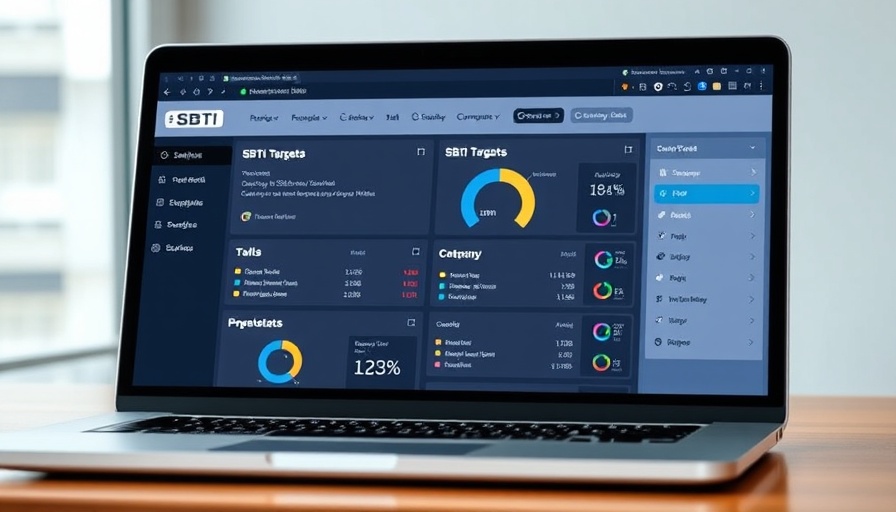
Avarni's Innovative System: Leading the Charge in Climate Action
Avarni, a frontrunner in carbon accounting technology, has rolled out an ambitious new feature called SBTi Targets, specifically designed to help businesses monitor and manage their Science Based Targets initiative (SBTi) commitments throughout their supply chains. This tool not only empowers organizations to view their suppliers' climate commitments but also provides a framework for assessing risks, enhancing collaboration, and accelerating decarbonization efforts across their entire value chain.
The Growing Need for Transparency in Supply Chains
With over 10,000 companies globally now pledging to align their operations with the SBTi framework, the pressure for comprehensive supply chain accountability has never been more pronounced. Traditional practices often leave gaps in visibility regarding supplier commitments, hindering organizations from pinpointing progress and establishing effective engagement strategies. Avarni's new feature addresses this challenge directly by automatically identifying SBTi-aligned suppliers, thereby equipping businesses with actionable data crucial for sustainable decision-making.
Regular Data Updates Elevate Reporting Standards
Recognizing the constantly evolving nature of climate policies and market expectations, Avarni ensures that companies always access the latest insights by syncing its platform with the SBTi database every Friday. These continuous updates substantially augment Scope 3 emissions reporting, which is essential for organizations looking to maintain compliance with global climate regulations and deal with investors keen on transparency regarding sustainability initiatives.
Insights from Industry Leaders: A Call to Action
Misha Cajic, Co-CEO and Co-Founder of Avarni, emphasizes the significance of managing supply chain emissions, stating, "Supply chain emissions represent the biggest challenge for most companies on their decarbonization journey." Cajic believes that by providing real-time insights into supplier commitments, businesses can make informed strategic choices that promote quicker climate action throughout their networks.
Contextualizing Risk and Opportunity
As regulatory frameworks become stricter and investor scrutiny intensifies, organizations face mounting pressures to demonstrate serious commitment to sustainability. In this climate, tracking SBTi commitments has become pivotal not merely for compliance but for mitigating risks associated with climate change. Given that approximately 80% of a company’s total emissions originate from its supply chain, it’s clear that this aspect cannot be overlooked if net-zero targets are to be achieved.
Encouraging Innovation and Collaboration
By using Avarni’s SBTi Targets feature, companies will not only streamline their emissions management but also promote greater innovation across their supply chains. Engaging suppliers in the conversation about SBTi commitment fosters collaboration that can enhance product design, resource utilization, and overall operational sustainability. Furthermore, as organizations urge their suppliers to adopt science-based targets, they contribute to a wider culture of sustainability that can lead to industry-wide advances in reducing carbon footprints.
A Path Forward: What Businesses Need to Know
The road ahead for businesses involves making strategic changes that align with environmental objectives while fostering resilience against climate-related disruptions. Integrating systems like Avarni into their operations allows companies to proactively address climate challenges and adapt to evolving market requirements. As evidence mounts that sustainability can drive efficiency and profitability, embracing these new technologies becomes not just a regulatory necessity but a competitive advantage.
In conclusion, Avarni is paving the way for businesses to take solid steps toward meaningful climate action. By bringing visibility and data-driven insights to the forefront, Avarni's SBTi Targets offers a robust solution for organizations committed to transparency and accountability within their value chains. The future of sustainable business practices lies in collaboration, transparency, and the proactive management of climate risks and opportunities.
 Add Row
Add Row  Add
Add 




 Add Row
Add Row  Add
Add 

Write A Comment